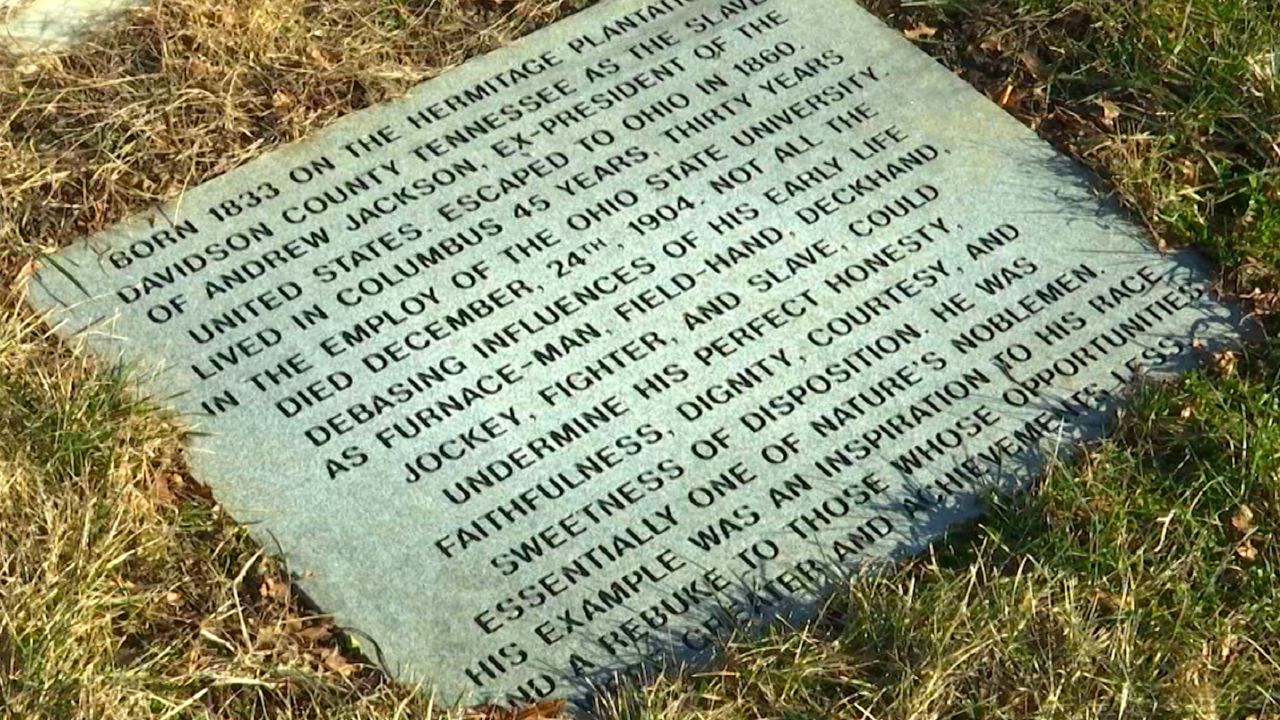COLUMBUS, Ohio — A headstone in section 52 of Columbus' sprawling Greenlawn Cemetery one day caught the eye of historian Steve Ball, who has helped place more than 150 markers for Union soldiers buried there.
“It was just something that really jumped out at me. Very interesting piece of both Ohio history, Underground Railroad history, African American history, and of course, American History. And it's one of the most important parts of the 19th century,” Ball said.
The headstone offered a glimpse into the life of Washington Townsend, and Ball, ever curious, began to do some research.

“He was a fighter, a furnace man, a field hand, a deckhand, a jockey and a slave,” Ball said.
Born in 1833, Townsend was a man enslaved at a plantation in Nashville, Tenn. by Andrew Jackson, America's seventh president.
Townsend escaped in 1860, and Ball estimates it probably took a year for him to reach Central Ohio, using homes such as the Kelton House as a safe space for freedom seekers along the Underground Railroad.
“It was a very arduous, difficult journey for anybody that escaped from one of those plantations in the deep south and tried to reach the state of Ohio. The intention always, of course, was to reach Ohio, someplace across the Great Lakes, get across that lake to Canada,” Ball said.
In his research, Ball said Townsend was married, and starting in 1885, he was a devoted groundskeeper and janitor at Orton Hall on Ohio State's campus for nearly 20 years.
“He was very well remembered by the student body and the faculty at Ohio State. At that time, the faculty's entire salary for everybody who worked there was $58,000. Washington Townsend made $480 a year,” Ball said.
Kyle Strickland is a senior legal analyst at Ohio State's Kirwan Institute for the Study of Race and Ethnicity.
He said Townsend's story is an inspiration, not just for African Americans, but for everyone.
“Even if you were to escape from slavery and go to a place where that was outlawed, you could be under the subject of being taken back. I went to Ohio State for undergrad. I work at Ohio State now. I don’t hear about that story a whole lot. So there’s so much that’s been left to the archives,” Strickland said.
Townsend was a favorite of Geology professor and first Ohio State President Edward Orton Sr.
By the time of Townsend’s death in 1904, it was Orton’s son, Edward Jr., who paid for his headstone and personally wrote the epitaph commending Townsend on his faithfulness, dignity, courtesy and disposition.
Although just a few images and stories of his existence remain, including a poem written by students, Townsend was a hero and inspiration to many on and off the OSU campus.
“To highlight that story will encourage others to look into his story, his family’s legacy, his legacy and contributions to our community. And, the countless stories of so many others who’ve contributed to this university and to this community, to this country who have been too often overlooked,” Strickland said.
“The American Civil War is probably one of the most important historical events of the formation of what today is known as the United States. Washington Townsend is just a little tiny part of that, but he's a tiny part that should never be forgotten,” Ball said.
Correction Feb. 16, 2022: A previous version of this story listed Andrew Jackson as the 24th President of the United States. It has been corrected to the seventh president.



